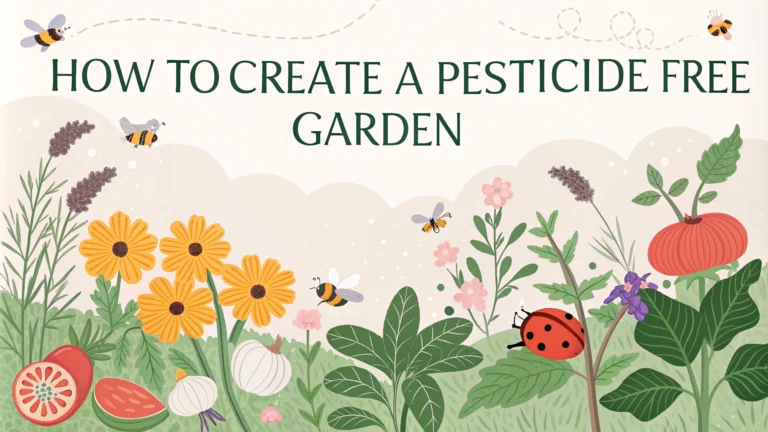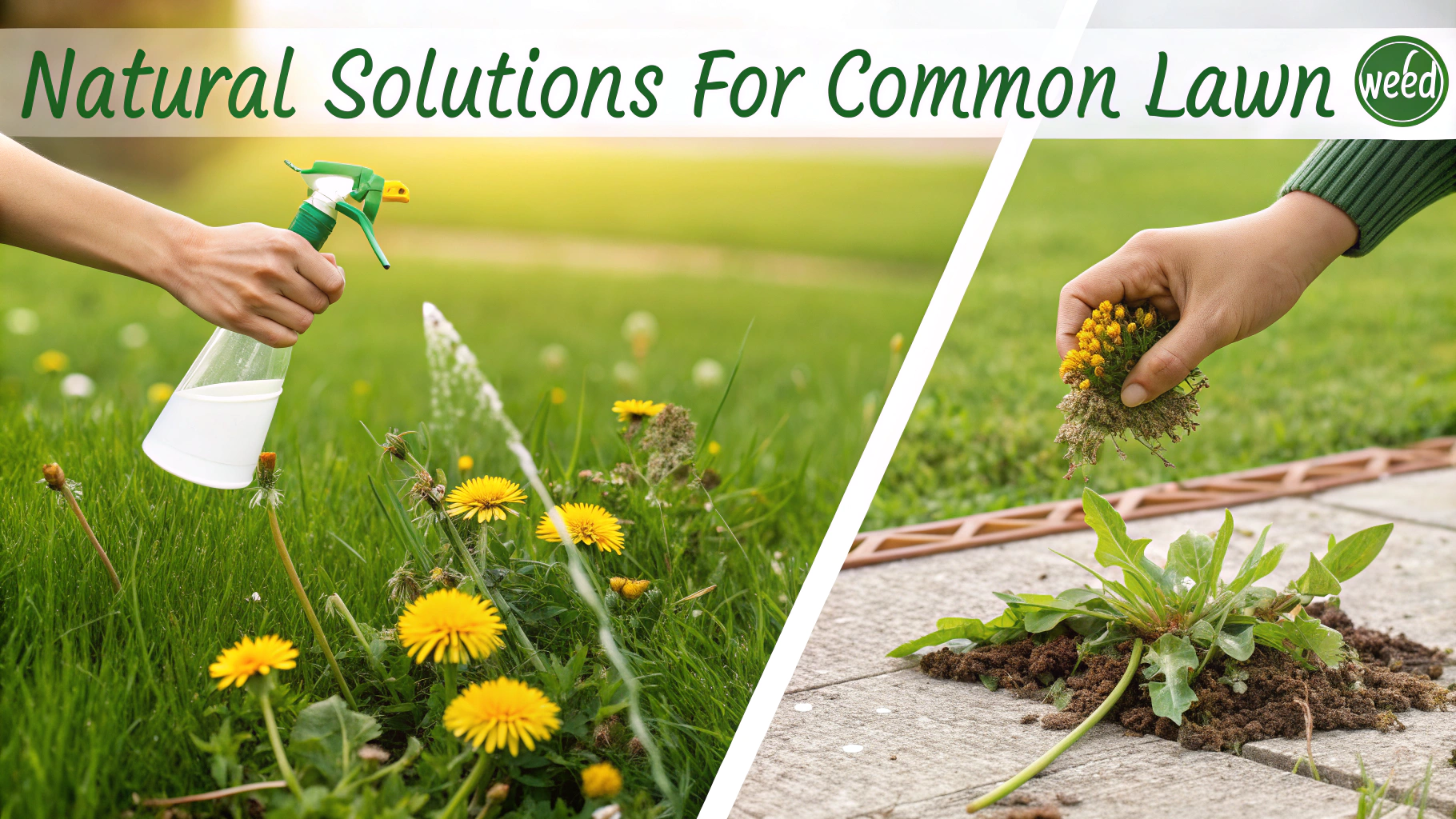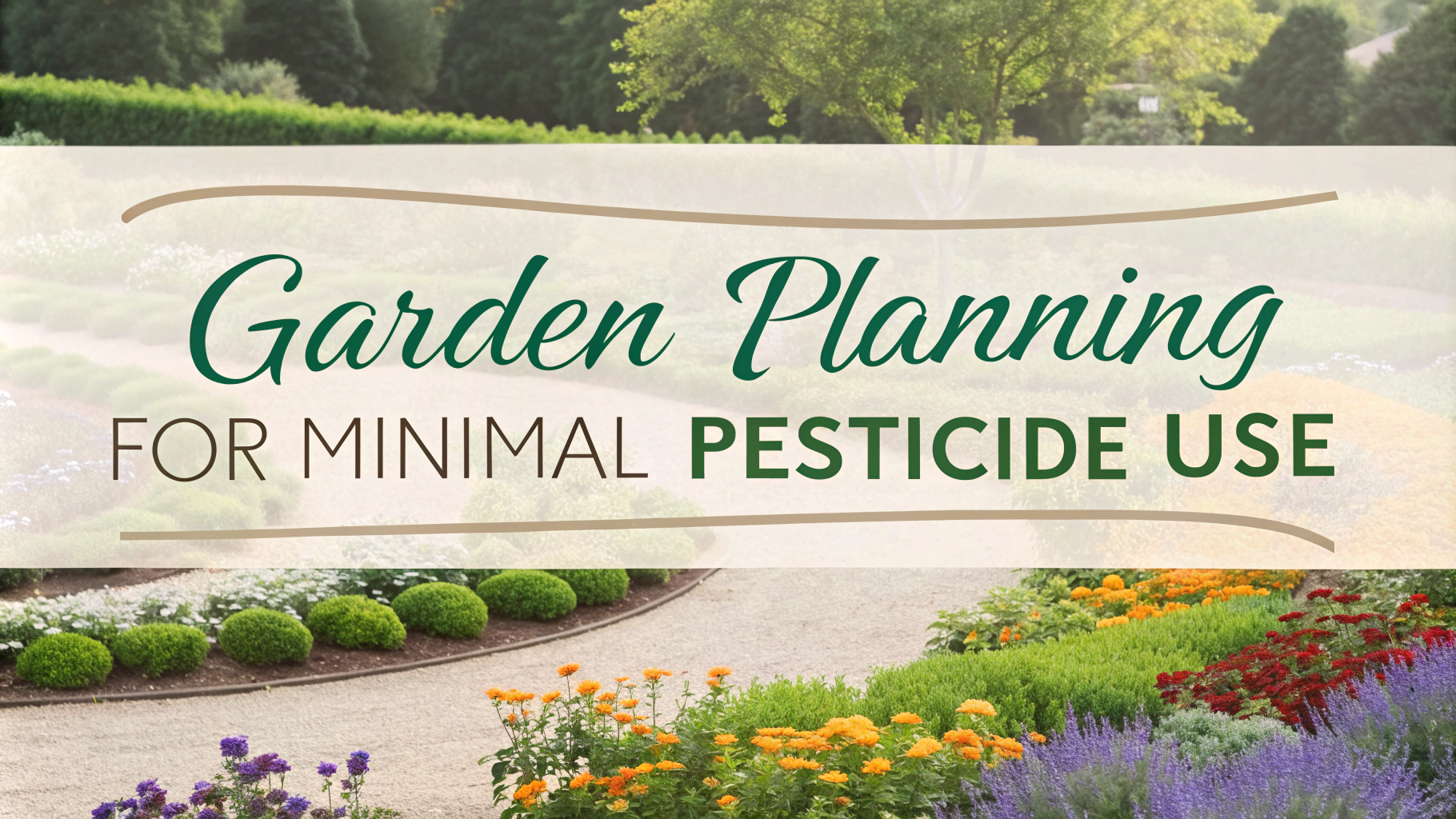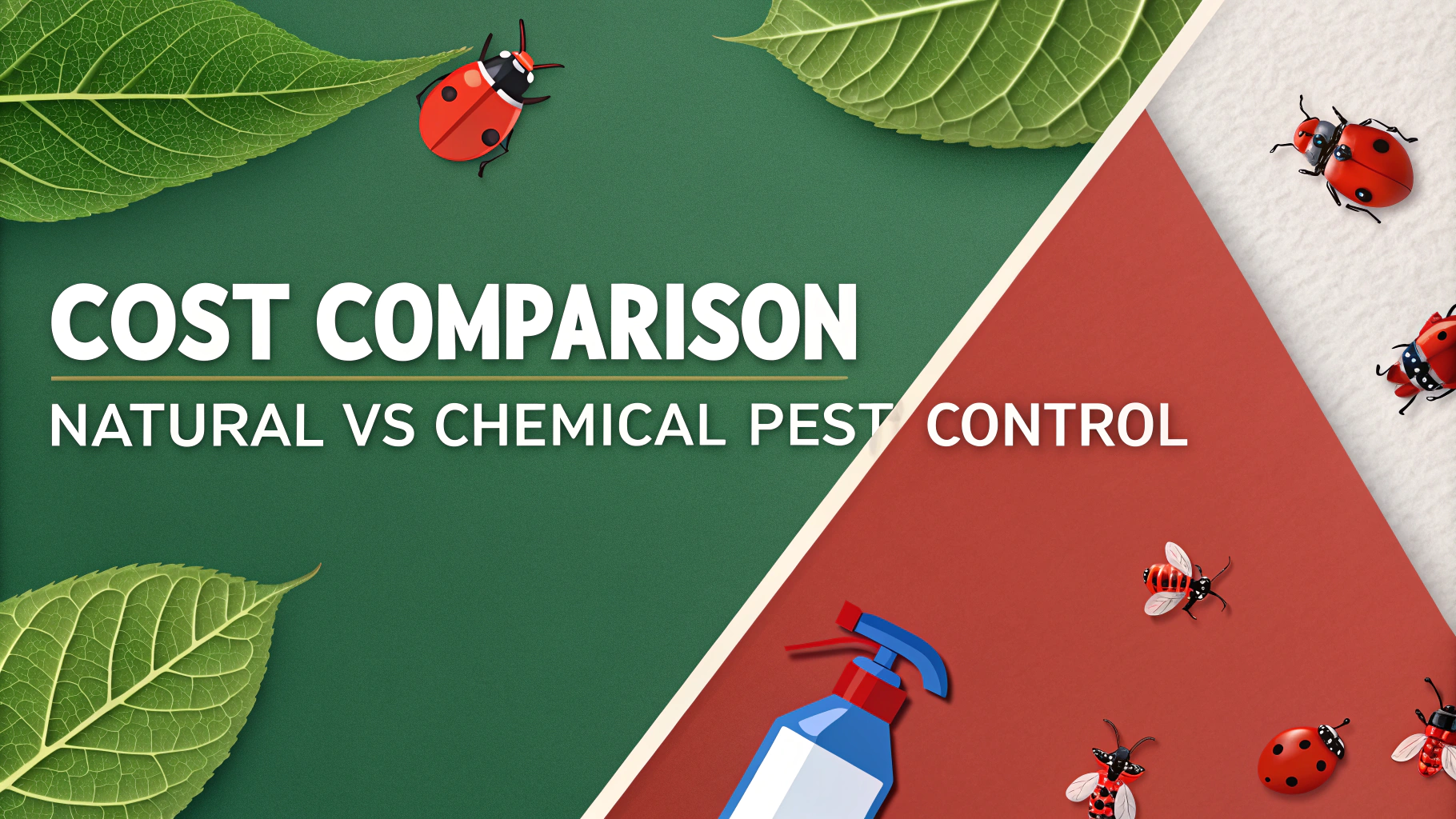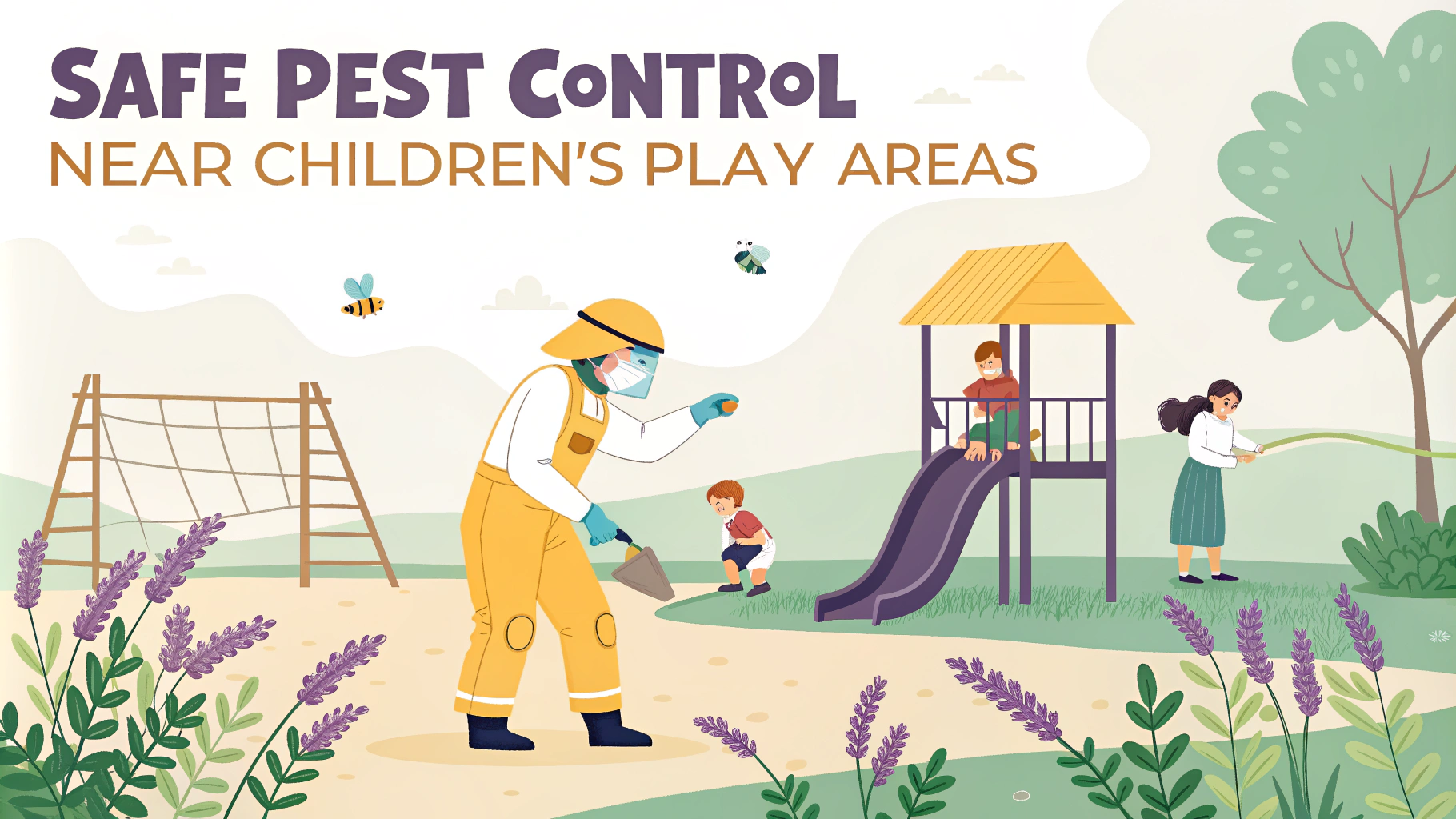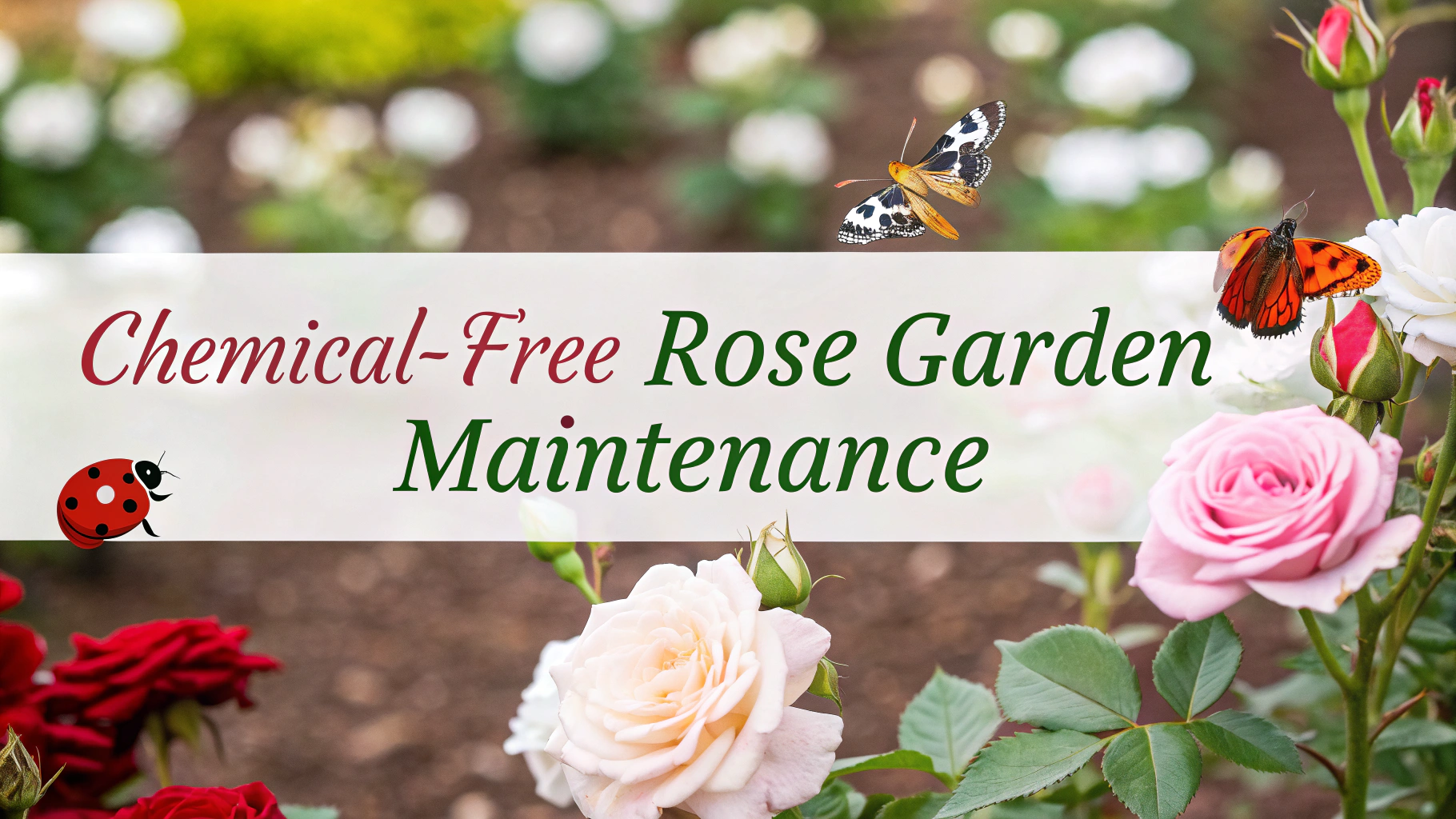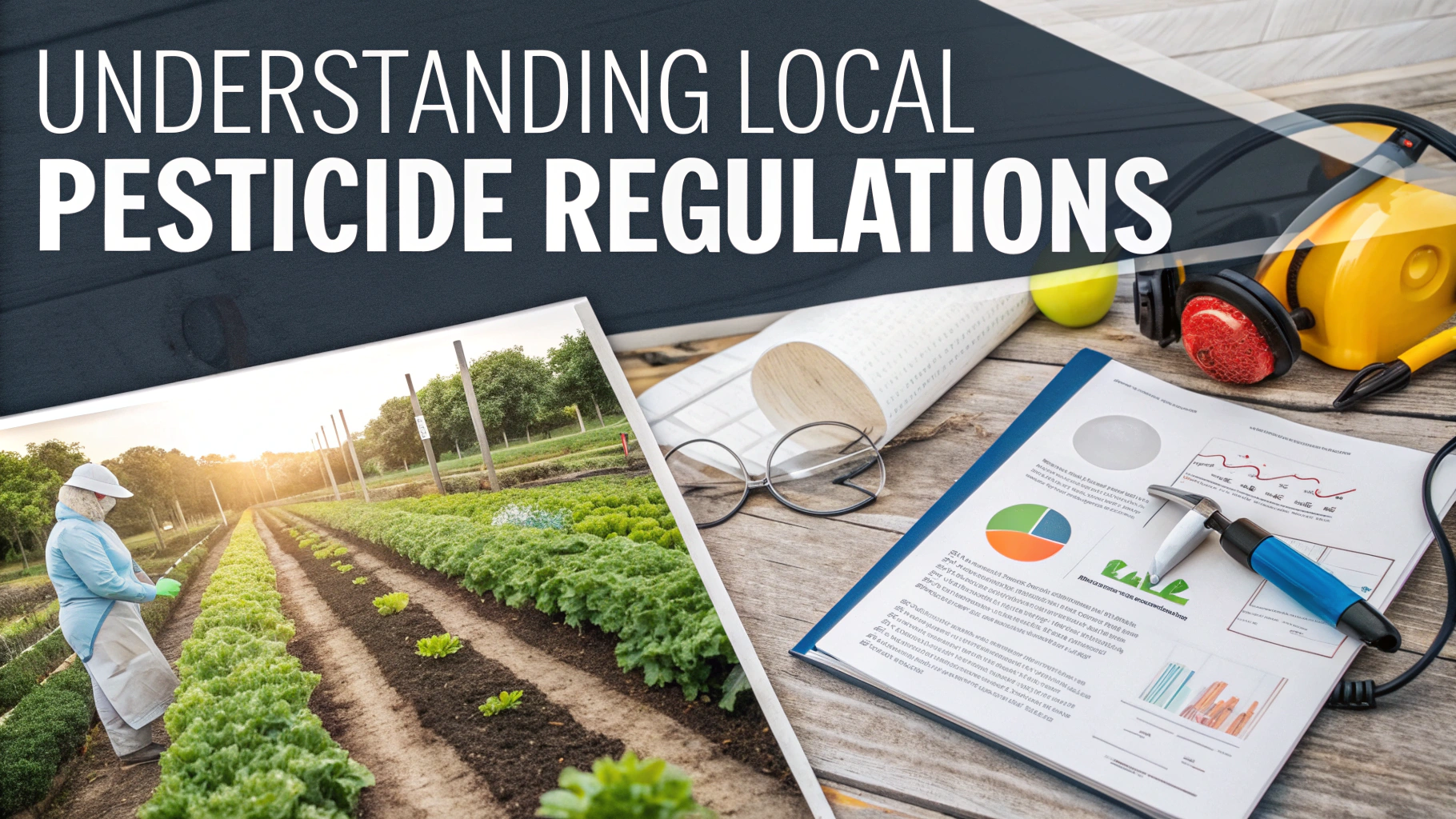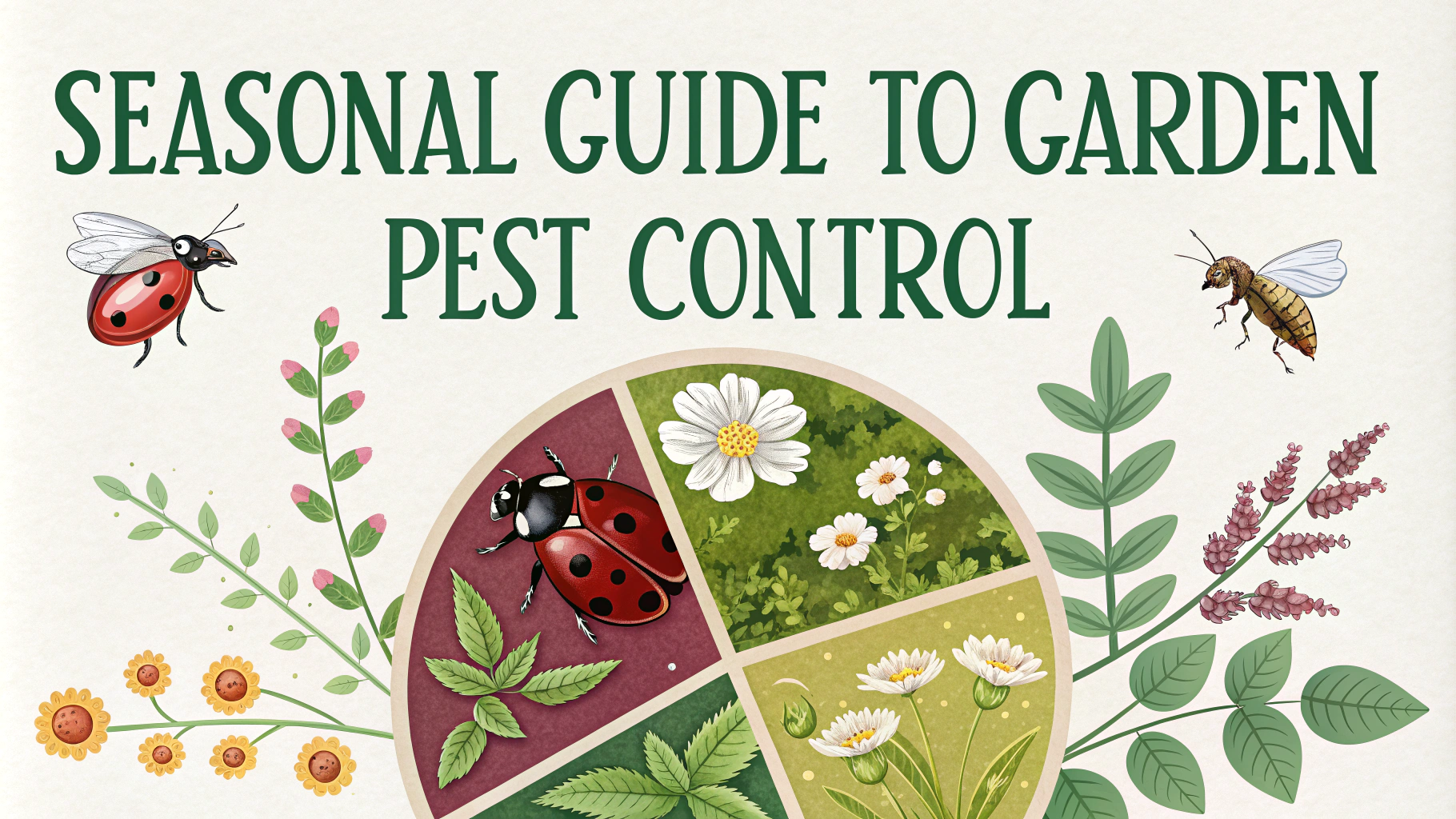Growing a pesticide-free garden not only promotes healthier plants but also protects beneficial insects, soil microorganisms, and your family’s health.
Natural Pest Control Methods
- Companion planting: Plant marigolds, nasturtiums, and herbs like basil near vegetables
- Physical barriers: Install row covers, netting, or copper tape
- Hand-picking: Remove larger pests manually during morning or evening hours
- Beneficial insects: Attract ladybugs, praying mantises, and parasitic wasps
Preventive Measures
Strong, healthy plants naturally resist pests and diseases better than weak ones.
Soil Health Tips
- Add organic compost regularly
- Maintain proper pH levels (test annually)
- Mulch to retain moisture and prevent weed growth
- Practice crop rotation to prevent soil depletion
Natural Pest Deterrent Recipes
| Solution | Ingredients | Target Pests |
|---|---|---|
| Garlic Spray | 4 cloves garlic + 2 cups water | Aphids, beetles |
| Neem Oil Solution | 2 tsp neem oil + 1 quart water | Multiple insects |
Plant Selection
Choose native plants adapted to your local climate and naturally resistant to common pests.
Recommended Pest-Resistant Plants
- Herbs: Lavender, rosemary, thyme
- Vegetables: Onions, garlic, hot peppers
- Flowers: Chrysanthemums, petunias, geraniums
Garden Maintenance
- Water plants early morning to prevent fungal growth
- Remove dead or diseased plant material promptly
- Space plants properly for good air circulation
- Keep garden tools clean and sanitized
For additional support with organic gardening practices, contact your local Extension Office or join community gardening groups.
Resources
- Cooperative Extension System – Find your local office
- National Agricultural Library – Research-based gardening information
Weather and Climate Monitoring
- Track local weather patterns and frost dates
- Install a rain gauge to monitor precipitation
- Use thermometers to measure soil temperature
- Create microclimate zones in your garden
Natural Disease Prevention
Common Practices
- Improve air circulation between plants
- Practice proper watering techniques
- Clean up fallen leaves and debris
- Use disease-resistant plant varieties
Season Extension Methods
- Install cold frames or hoop houses
- Use floating row covers
- Apply organic mulch for temperature regulation
- Create windbreaks for sensitive plants
Record Keeping
- Document pest occurrences and treatments
- Track planting dates and crop rotation
- Monitor successful pest-resistant varieties
- Note seasonal weather patterns
Conclusion
Maintaining a pesticide-free garden requires dedication, observation, and preventive practices. By implementing these natural methods and maintaining good garden hygiene, you can create a thriving ecosystem that naturally deters pests while producing healthy, chemical-free crops. Remember that building a resilient garden takes time, and success comes from consistent application of these organic practices.
Start with small changes and gradually expand your pesticide-free practices as you gain experience. Your efforts will contribute to environmental preservation while providing safe, nutritious produce for your family.
FAQs
- What are the best natural alternatives to chemical pesticides?
Companion planting (like marigolds and basil), neem oil, diatomaceous earth, insecticidal soaps, and beneficial insects like ladybugs and praying mantises are effective natural alternatives to synthetic pesticides. - How can I strengthen my plants naturally to resist pests?
Build healthy soil with compost, maintain proper watering schedules, ensure good air circulation, and use organic fertilizers to grow strong, resilient plants that naturally resist pest invasions. - Which beneficial insects should I attract to my garden?
Attract ladybugs, praying mantises, parasitic wasps, ground beetles, and hoverflies by planting flowers like yarrow, dill, fennel, and native wildflowers. - How do I deal with common garden pests without pesticides?
Use physical barriers like row covers, hand-pick larger pests, spray strong jets of water to remove aphids, and maintain proper plant spacing to prevent pest problems. - What role does crop rotation play in pest management?
Rotating crops annually prevents pest populations from establishing, breaks disease cycles, and maintains soil fertility by not depleting the same nutrients repeatedly. - How can I use companion planting for pest control?
Plant aromatic herbs like rosemary, mint, and lavender near vegetables, use marigolds to repel nematodes, and grow nasturtiums as trap crops to protect other plants. - What homemade sprays can effectively control garden pests?
Mix garlic and hot pepper solutions, diluted neem oil sprays, or soap-based sprays using natural castile soap to control soft-bodied insects naturally. - How important is biodiversity in a pesticide-free garden?
Biodiversity is crucial as it creates natural balance, prevents pest outbreaks, and supports beneficial insects and birds that help control pest populations. - When is the best time to implement pest control measures?
Early morning or late evening when beneficial insects are less active, and at the first sign of pest problems before infestations become severe. - How can mulching help in pest control?
Proper mulching suppresses weed growth, maintains soil moisture, creates barriers against certain pests, and provides habitat for beneficial insects and natural pest predators.
